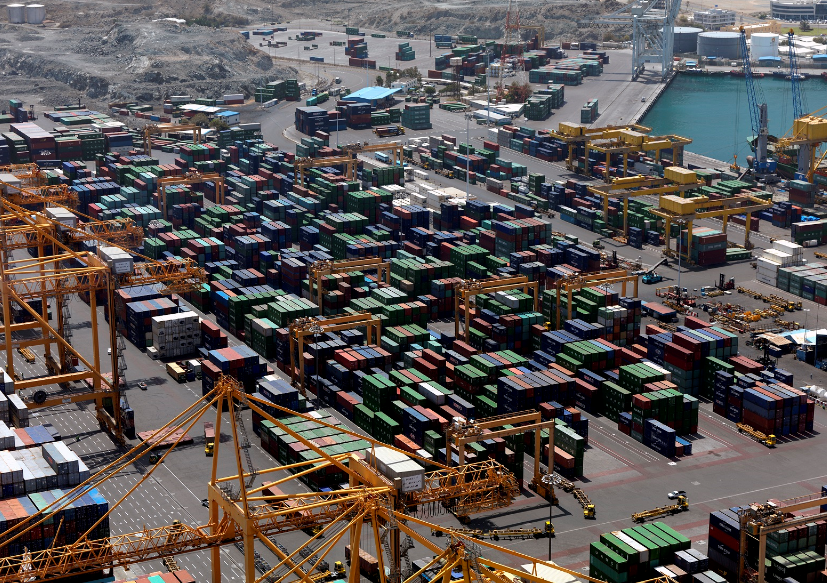Gulftainer Launches Global Startup Challenge to Boost Tech Innovation in Ports and Logistics Sector
Gulftainer, the world’s largest privately owned, independent port operator, announced today the launch of the Future of Ports Startup Challenge 2020 to identify startups from across the globe with the ambition to lead the transformation of the port management and logistics industries.
Gulftainer has partnered with the Global Silicon Valley labs (GSVlabs), a leading global innovation platform, to engage startups in five unique areas of opportunity where Gulftainer is pursuing new solutions: The Internet of Things and Robo-Doctors; Artificial Intelligence and Autonomous Drones; Big Data and Advanced Analytics; Blockchain and Bring Your Own Idea.
This competition challenges entrepreneurs and startups from around the world to set their mark in the ports and logistics ecosystem, to grow, and to position their solutions in the industry. The call for applications is now open till August 15 and startups interested in participating can apply through the Future of Ports Startup Challenge website – gtinnovationchallenge.com.
“Gulftainer isn’t looking for incremental technology or ‘easy fixes’ – we are committed to developing long-term partnerships with emerging technology companies and working together to build the port of the future. Our aim is to seek entrepreneurs and unconventional thinkers, with a vision for the future, to chase groundbreaking innovation in technology areas that will transform the industry,” said Peter Richards, Group CEO of Gulftainer.
“The Future of Ports Startup Challenge is coming at a time when the supply chain and logistics industry is ripe for innovation. We’re excited about our partnership with Gulftainer and being involved in the port industry’s revolution,” says Nikhil Sinha, CEO of GSVlabs. “The application of AI, Robotics, Cloud and Blockchain technologies will be a driver of innovation in the industry and this Challenge is the perfect opportunity to source and uncover the most promising startups that are poised to lead in this space.”
Once the proposals are evaluated, the winning startups will be invited to present their projects to an audience made up of leaders from across the port and logistics industry, and innovation and investment sectors on November 5, 2020.
This is only the beginning of the offering that Gulftainer will present to the winners. In addition to the introduction to new investors and industry leaders, Gulftainer will also award a cash stipend to each of the winning startups in each category and provide the opportunity to explore the deployment or co-development of their technology.
To know more about Gulftainer’s 2020 Future of Ports Startup Challenge open call, please visit: gtinnovationchallenge.com
More Information about the four Technology Tracks:
IoT and Robo-doctors
The expansion of IoT and AI has created the opportunity for automated monitoring of critical equipment using smart sensing technology. These tools have the potential to significantly reduce maintenance costs and unplanned downtime. In the future, ports will pursue 100% predictive maintenance and repair, autonomous “robot-doctors” with the ability to fix anomalies at greater speed and accuracy and 3-D printers that can print required spare parts on site.
AI and Autonomous Drones
The increasing maturity of artificial intelligence and machine learning capabilities combined with reduced costs of drone and geo-spatial technologies, has created unprecedented opportunities to enable fully automated operations, including autonomous inspections and drone-based cargo and container deliveries.
Big Data and Advanced Analytics
Big data technologies are making it easier than ever to gain real-time insights into business operations and perform automated modeling and simulations. These insights can help port operators optimize terminal operations, eliminate supply chain inefficiencies and maximize utilization of infrastructure. In the future, the movement of all physical objects and infrastructure will be digitally recorded and represented to provide perfect insight into operations.
Blockchain
Blockchain technology will revolutionize data exchange processes within ports and global supply chains, drastically reducing shipping transit time and cost, with increased transparency. In the future, “cooperating” robots that take over transport and machine handling will use blockchains to transact and validate, integrating seamlessly with supplier systems and reducing human intervention in document heavy transactions.
Bring Your Own Idea
The above tracks and descriptions are guidelines to the disruptive technologies Gulftainer is looking to embed within its operations. Over and beyond these tracks, we welcome pitches from start-ups that encompass exponential technologies and futuristic business models that will completely disrupt the ports and logistics industry.






















 Kuwaiti developer URC signs with Ahmadiah Contracting for the Commercial District development at Hessah AlMubarak
Kuwaiti developer URC signs with Ahmadiah Contracting for the Commercial District development at Hessah AlMubarak